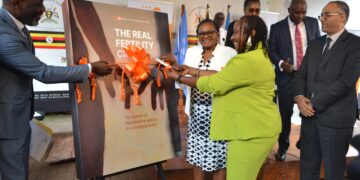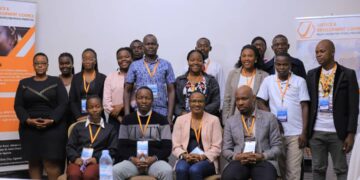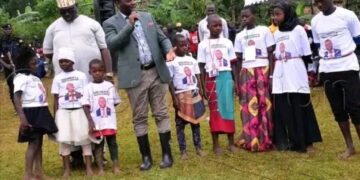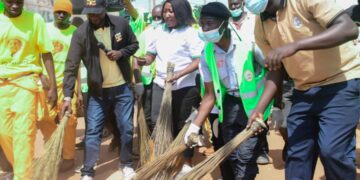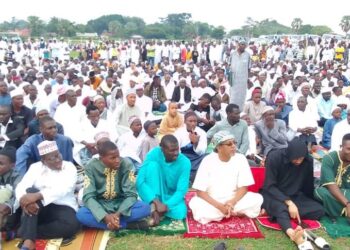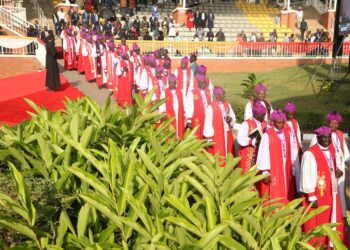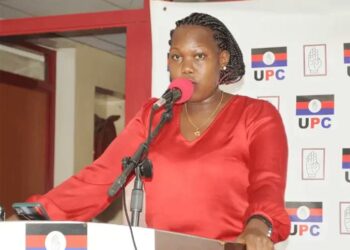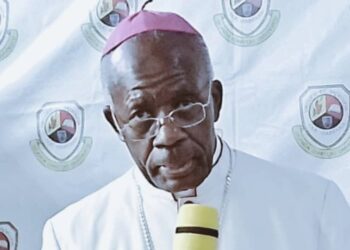By Leonard Kamugisha Akida,
NATIONAL
Respected media outlets have generated headlines with their reporting on child labor in a variety of activities including in production, brutal forced labour in mining and fishing, fraudulent recruitment practices into sex work businesses, street vending and beggary across the country.

In many cases, journalists work with Civil Society Organizations, Children Rights organizations and workers who fight for the rights of children as their sources of information some times at a personal risk.
With this reporting, the media and its practitioners have a good understanding of the different government laws and policies on child labour and forced labour, and spotlight for child labour and perpetrators of this illegal practice in Uganda.
Bernard Amuriat, the Assistant Commissioner Labour Inspectorate in the ministry of gender labour and social development says the media can significantly influence the campaign to end child labour in Uganda and asked journalists and other media actors use their platforms to create awareness on child labour.
“I urge you members of the press to use your platforms to advocate against child labour because employing children constrains Uganda’s vision 2040 and it perpetrates a cycle of poverty by exposing children to harmful practices like drug abuse,” he said.
The government of Uganda defines child labour as children between 5-11 years engaged in any economic activity, children aged between 12-13 doing work other than light work beyond 14 hours a week or children 14-17 years involved in hazardous forms labour or working for equivalent 43 hours or more a week.
National estimates in Uganda suggest that 18% of children aged 5 to 17 years are engaged in child labour. Most of these children work in agriculture, though other sectors include construction, mining, manufacturing, domestic service, street work and commercial sexual exploitation.
Uganda’s child labour policy, 2006, the National Employment Policy, 2011, the Employment Act, 2006, Occupational Safety and Health Act, 2006, and the Employment Regulation Act, 2011, have provisions that prohibit child labour.
The Uganda National Household Survey report, 2019/2020 revealed that incidences of child labour in Uganda increased from 21 percent to 36 percent during the COVID-19 pandemic. The UNICEF also reported that 1 in 10 school going children did not return to school after the reopening of schools from the COVID-19 lockdown. According to UNICEF, these likely slipped into child labour.
“36 percent of children between 5-17 years were engaged in child labour including Household chores an increase from 21 percent registered before March 20th, 2020,” read UNHS report.
The report further indicated that Busoga and Bukedi Sub-regions had the highest population of children aged 5-17 years involved in child labour at 29% and 28%, respectively. Rural areas were also reported to have the highest cases of child labour at 31 % compared to 20% of the cases reported in urban areas.
Amuriat was representing the minister of state for gender labour and social development – in charge of children and youth affairs, Dr. Balaam Barugahara Ateenyi at a media engagement on the commemoration of world day against child labour due to take place on Wednesday 12th June, 2024, at Mestil Hotel Nsambya, Kampala. The global theme of this year’s world day against child labour is; “Let us act on our commitments: End child labour.”

The minister said in a statement that commemoration of this day brings to focus the global extent of child labour and the action and efforts needed to eliminate it. He also disclosed on numerous government interventions to end child labour in Uganda such as reviewing of laws and policies on child labour, establishment of government programmes such as the universal education and wealth creation programmes, stepping up labour inspections and enforcement of labour standards to ensure compliance with the laws against child labour and creating advocacy and awareness on the dangers and consequences of this practice.
Accordingly, the minister said that elimination of child labour collectively requires everyone’s participation.















